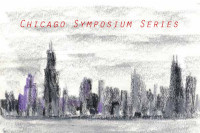University of New Hampshire
The Dunning-Kruger effect is a cognitive bias that plagues a particular population of students—the unskilled. This population suffers from illusory competence, as determined by inaccurate ratings of their own ability/performance. These mistakenly high self-ratings (i.e. "illusions of competence”) are typically explained by a metacognitive deficiency of the unskilled—they simply can't recognize their own mistakes. We have demonstrated that low performing general chemistry students suffer from illusory competence—they are substantially miscalibrated from their actual standing on course assessments. Alarmingly, this miscalibration phenomenon also appears to persist across a semester, despite repeated feedback. However, engaging in feedback appears to abate students’ illusions of competence. When students generate task feedback on course exams (by addressing why a specific exam response did not receive full credit, provided responses that would have received full credit, and reflected upon learning/studying issues that resulted in receiving less than full credit), students tend to become more calibrated to their performance (and improve performance!) on subsequent exams.
Sam Pazicni is an associate professor of chemistry at the University of New Hampshire. He received B.A. degrees in Chemistry and Music from Washington and Jefferson College, M.S. and Ph.D. degrees in Inorganic Chemistry from the University of Wisconsin, and performed post-doctoral research in Biophysics and Chemistry Education at the University of Michigan. At UNH, Sam leads an active research group, specializing in both bioinorganic chemistry and chemistry education research, and co-directs the CC2CEPS Scholarship Program, designed to provide academic and financial assistance to community college students transferring to UNH to complete a baccalaureate degree in a STEM field. He is also a teaching/learning/assessment fellow with UNH’s Center for Excellence in Teaching and Learning. Sam is a member of the American Chemical Society, and currently serves on the Society Committee on Education and on the Division of Chemical Education's Chemistry Education Research Committee.

